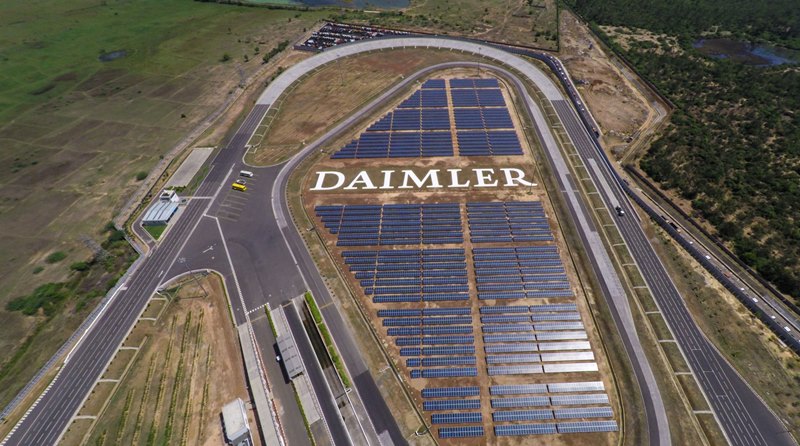Daimler India Commercial Vehicles (DICV) has been selected as this year’s winner of the prestigious Golden Peacock Environmental Management Award. The award was handed over to DICV MD and CEO Mr. Erich Nesselhauf by Justice Kurian Joseph, Judge of the Supreme Court of India, at the 19th World Congress on Environment Management held in Hyderabad.
Acknowledging the award, Mr. Nesselhauf said: “We are honoured to receive this prestigious award, which we take as further encouragement of our sustainability efforts. As much as we drive the change with fuel-efficient clean BS-IV trucks and buses, we are committed to produce them in an environment-friendly manner that protects valuable resources.”
The Golden Peacock Award, instituted by the Institute of Directors, India in 1991, are regarded as a benchmark of Corporate Excellence worldwide. With wide acceptance among businesses and industry, its ‘Awards Certification’ has achieved recognition and patronage among peers, globally. The Golden Peacock Awards Secretariat receives over 1,000 entries per year for various National and Global awards, from India and over 25 countries worldwide.
Green production efforts at DICV
Daimler India Commercial Vehicles’ environmental management system is certified according to the global standards of ISO 14001:2004. The company’s environmental and sustainability efforts cover various aspects of its operations. The manufacturing plant in Oragadam near Chennai is spread over 400 acres. More than 70% of electrical power demand is already met from renewable sources, with 16% generated from photovoltaic installations on site. DICV aims to reach 100% renewable energy coverage in 2018.
Water management is another focus, ensuring that the precious resource is used as sparingly as possible, and that no water leaves the plant (“zero discharge”). These efforts include advanced wastewater treatment, rainwater harvesting with a huge storage pond holding more than 60,000 kilolitres of water, and drip irrigation systems. Dedicated state-of-the-art facilities are also used to handle, store and dispose of hazardous materials and harmful effluents within the plant complex. More than 16,000 trees have been planted since the start of operations in 2012, as part of ongoing efforts in order to ultimately make the entire site one of India’s greenest industrial complexes.
